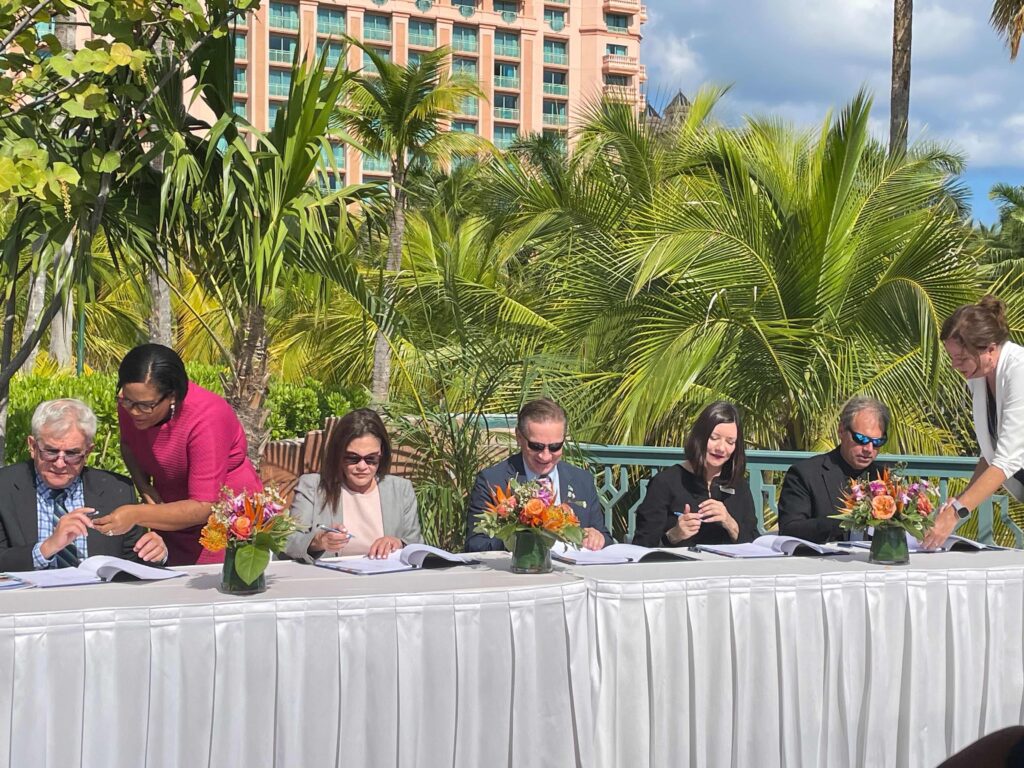A harrowing marine crisis calls for bold, innovative solutions — a reality that underpins our recent launch of The Bahamas’ inaugural living coral gene bank. This groundbreaking initiative — aptly termed a “Noah’s Ark” for corals — offers a glimmer of hope amid the region-wide havoc wreaked by the Stony Coral Tissue Loss Disease (SCTLD) pandemic.
The country’s first-ever coral gene bank is a collaborative tour de force between our partners at the Perry Institute for Marine Science (PIMS) and Atlantis Paradise Island, Atlantis Blue Project Foundation, the Government of The Bahamas, and the University of The Bahamas. Securely nestled within the world-renowned Atlantis resort, the gene bank provides a biosecure safe zone for healthy corals and survivors from SCTLD-ravaged areas. The facility will equip our team of PIMS aquarists and scientists, with assistance from Atlantis husbandry and conservation experts, to rescue hundreds of corals from up to 20 species at risk of extinction from the disease.
The SCTLD pandemic, first detected in Florida in 2014, has left a trail of destruction across Caribbean coral reefs, and The Bahamas hasn’t been spared. The disease has spread to ten major islands, causing alarmingly high mortality rates among susceptible coral species. The cause of SCTLD—whether a virus, bacteria, or a combination—remains a mystery. Research by PIMS suggests that commercial ships may have initially brought the disease to The Bahamas.
PIMS has achieved an impressive 85% success rate in treating wild corals with an antibiotic-based paste, offering localized relief for reefs. Yet, antibiotics alone cannot halt the relentless spread and scope of the disease. Multiple coral rescue facilities, like the one being erected on Paradise Island, are essential for preserving corals and their genetic diversity in the face of this enduring menace.
Debra Erickson, conservationist and Executive Director of the Atlantis Blue Project Foundation, observed, “The Bahamas Coral Gene Bank at Atlantis Paradise Island goes beyond coral rescue—it’s about securing the future of Bahamian reefs. Through this initiative, we’re not only conserving critical marine life but also safeguarding our vibrant Caribbean culture.” Established in 2005, the Atlantis Blue Project Foundation focuses its mission on preserving aquatic species and their habitats throughout The Bahamas and the broader Caribbean. Supported by the participation of guests at Atlantis Paradise Island’s marine encounters, the non-profit bolsters scientific research, conservation initiatives, education programs, and community outreach, aimed at ensuring a sustainable future for the ocean’s rich tapestry of unique and endangered species.
The launch of the coral rescue facility at Atlantis Paradise Island heralds more than just a coral-saving operation; it embodies a steadfast commitment to safeguarding The Bahamas’ biodiversity, economy, and unique way of life. Its establishment broadcasts a powerful message of hope and resilience to the world — a pledge to confront adversity head-on, seek innovative solutions, and secure a brighter future for marine life and the communities that rely on it.
Dr. Craig Dahlgren, Executive Director at PIMS and renowned global coral reef authority, noted, “The gene bank represents a landmark in marine conservation efforts, one that merges scientific innovation, international collaboration, and the resilient spirit of The Bahamas in the face of an unprecedented marine crisis. Dr. Dahlgren, whose research has profoundly impacted marine resource management and policy in The Bahamas over the last three decades, asserted, “Nevertheless, this facility is just the first of many we hope to see across The Bahamas. We must expand our efforts, increase research on the disease, and establish a network of rescue facilities to effectively restore our reefs. The unwavering support of the government in championing these efforts is key.”
This seismic shift in the fight against the underwater pandemic was punctuated by an official signing ceremony on May 18, 2023.


